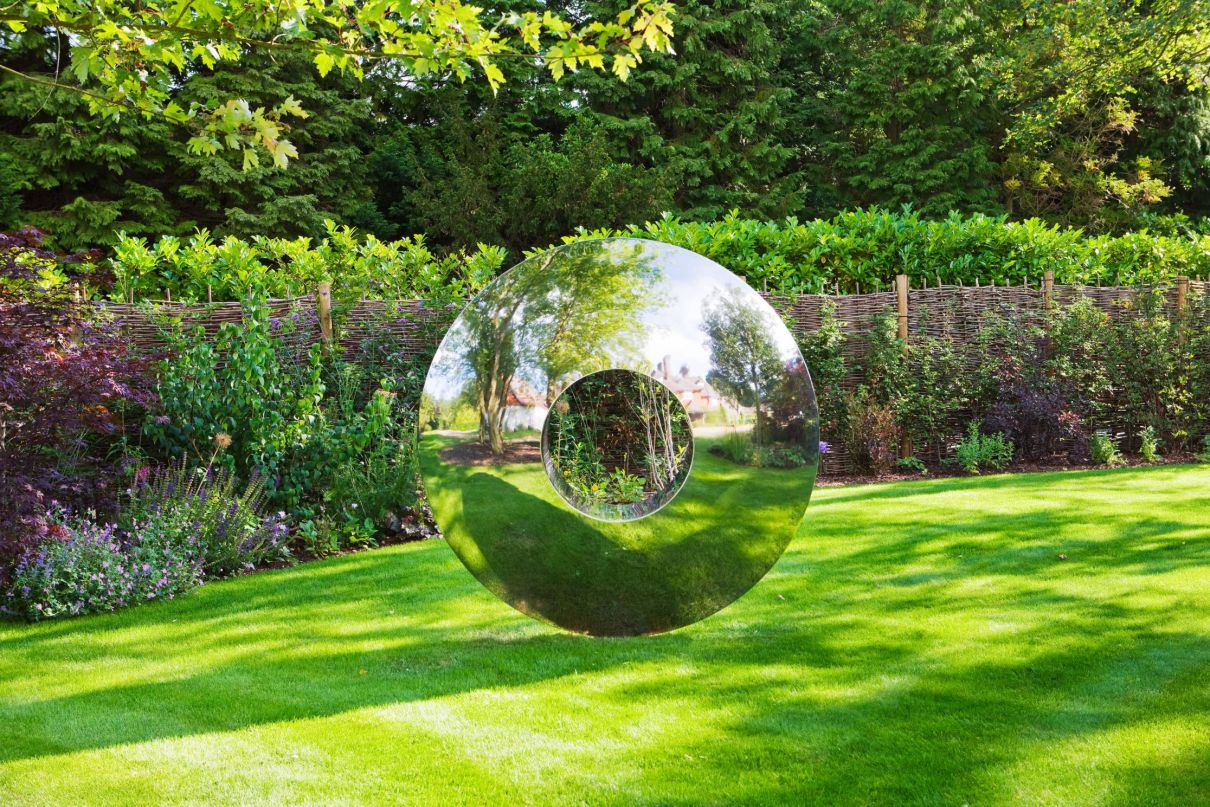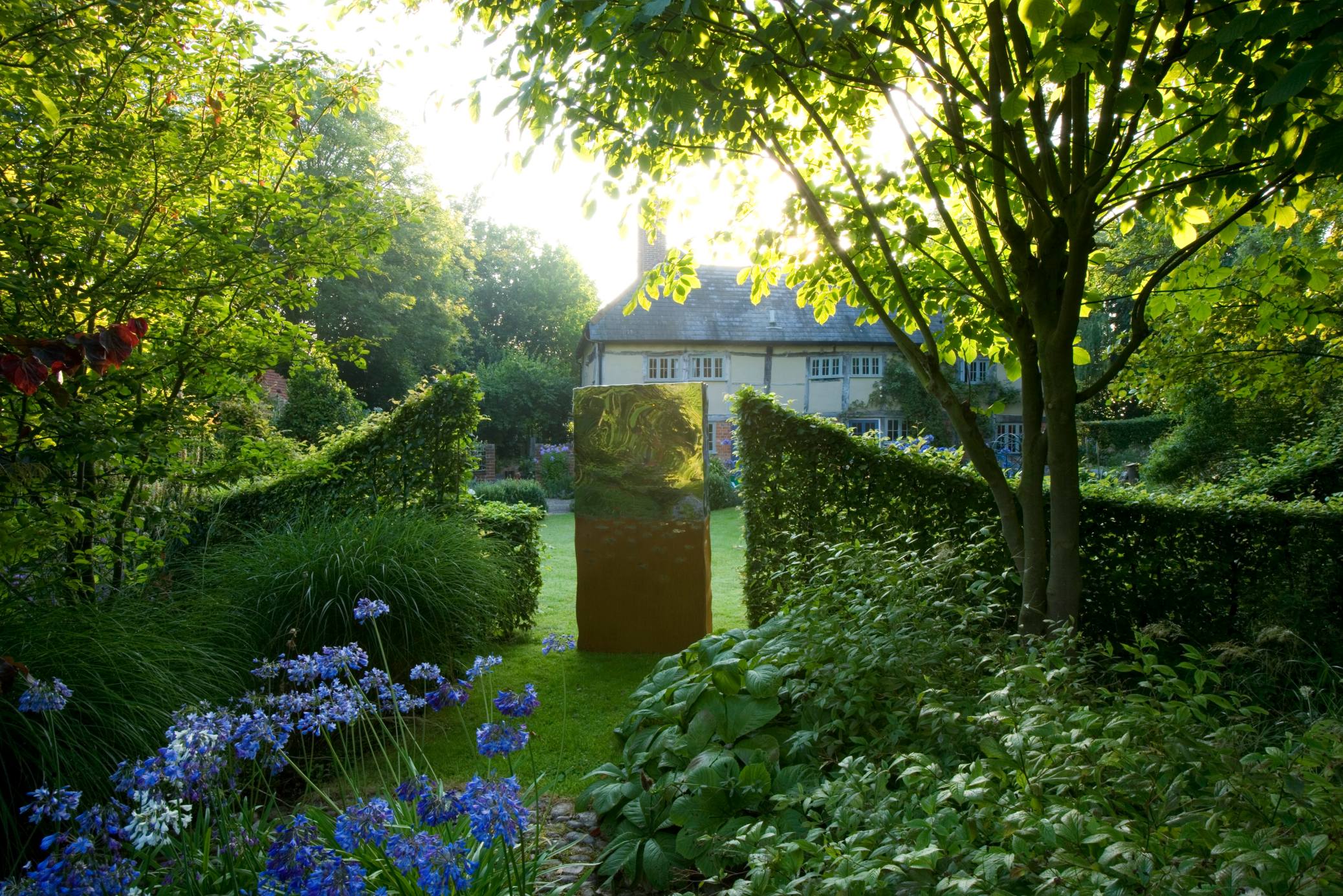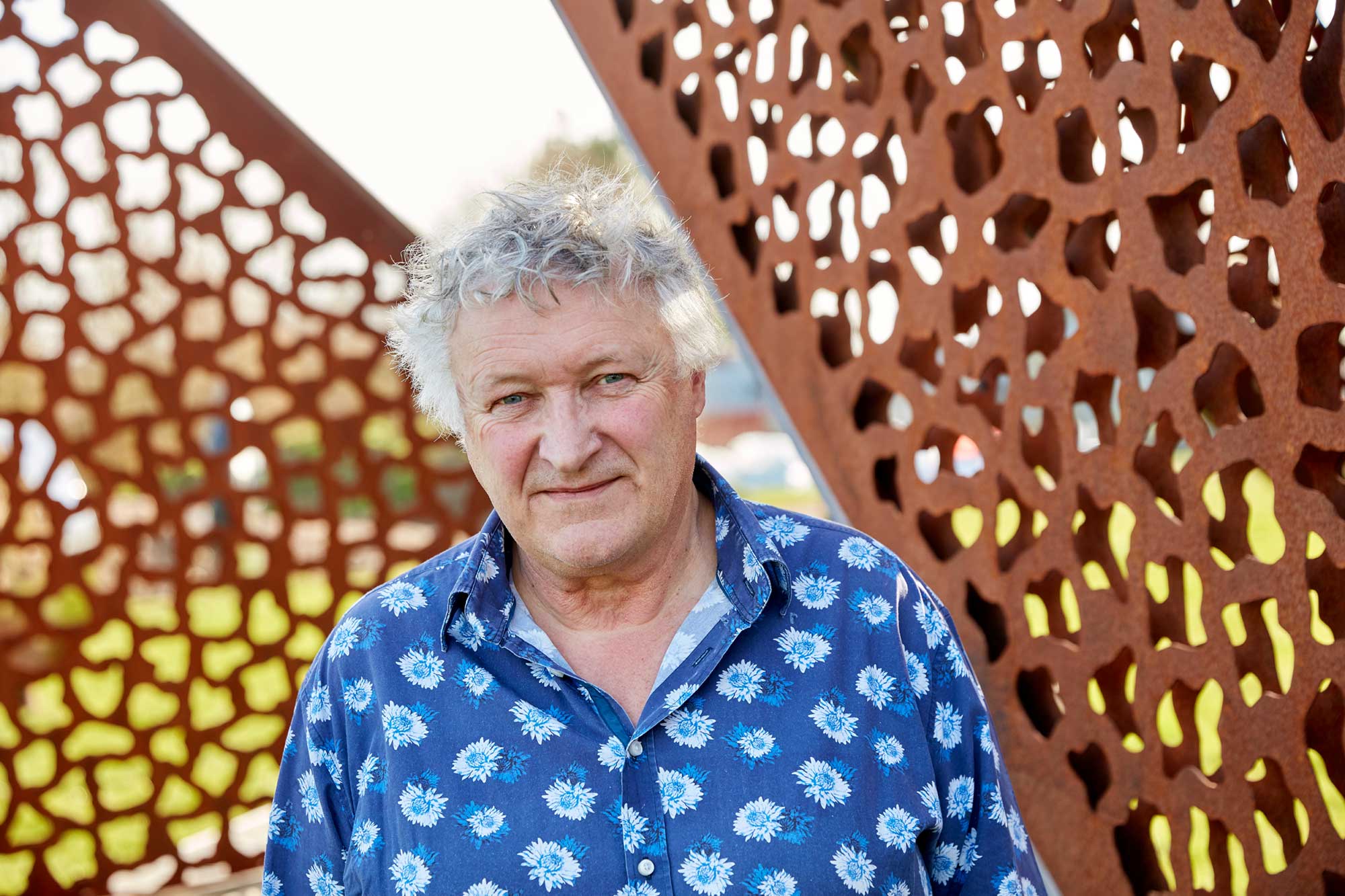Gaining Perspective From Nature

An award-winning garden sculptor gives his advice on finding solace in nature under lockdown.

Exterior sculptor David Harber spends much of his time outdoors. He believes nature can have powerful therapeutic properties and is vital for our wellbeing. Here, he provides practical tips to get through lockdown using nature as therapy - even if you don't have a garden.
- Re-focus and be reassured of the continuum of nature
What I find extraordinary is that, during this unprecedented moment, we are forced to re-focus and we are reminded of the reassuring continuum of nature. To make the most of working from home and spending time in the garden, I suggest setting up a bird feeder and marvelling at the oblivious chirpiness of our feathered friends, planting out seeds in the way that homo sapiens have for millennia, and having the time to be reassured by what is obviously a reliable and beautiful cycle.
For those who do not have an actual garden, I suggest focusing on indoor plants and window boxes. Even the smallest patch of garden form both an educational experience and an emotionally rewarding exercise. I am particularly fascinated to see the younger generation discovering this.
- Enjoy a slower pace of life and the extra time with family
Enjoy spending more time with your family is one clear benefit of spending time at home. We are sharing the responsibility for the new vegetable garden with our three daughters, so we are also relishing spending this time with them – something that our fast-paced life wasn’t previously allowing us to do.
Taking advantage of an increased amount of time available to devote to improving your surroundings is another. Having just built a new workshop in our studio in Oxfordshire, we are looking forward to creating the landscape that has been designed to complement the building and to provide a nurturing environment for the team at David Harber, as well as a beautiful place to show our artworks.

- Watch, look and listen to nature in its full glory
Having the chance to stop and fully appreciate nature cannot be underestimated. I suggest finding the specific areas of the garden that have different characters to match your mood, whether that be calm and secret, shady and contemplative or basking in full sun on the mown lawn.
Remember to enjoy the smells and sounds of the garden, the damp muskiness of early morning and the calm stillness of sunset. It can be helpful to make a note on a daily basis of the dawn chorus, something that I always find overwhelming. As a child my mother planted magnolia trees in the gardens of our neighbours in suburban London. All of the children were encouraged to go and mark and measure individual shoots and plot a graph of their daily growth and this gave a raft of educational skills, but most importantly the inspiring awareness of how virulent and beautiful nature is.
- In your daily visit to your local park or garden, notice how nature and art interact with each other
I firmly believe that any time spent with the calming influence of nature in these disturbing times is time well spent, and indeed the public awareness and pleasure derived from the energising force of nature is palpable. This re-awakening for many of us is experienced in public parks, where sculpture is a gift to the senses. On your daily walk in the park take a new perspective. Notice the art placed there and see how it interacts with nature. It can be both beautiful and intellectually stimulating, but most importantly, it demands our attention, a pause to reflect and to feel nourished by art.
It also gives us the opportunity to appreciate the craftsmanship and time-honoured skills that are harnessed when producing one of these pieces. In a world where 90% of activity is commercial, the very presence of a work of art for the appreciation of the public at large, is a reassuring symbol of philanthropy and sharing.
David Harber, the international sculptor has been creating contemporary and classical sculptures, sundials and water features for the garden for nearly 30 years. He playfully incorporates nature, reflection, light and water to create dramatic focal points in both exterior and interior settings. His work can be found in private gardens and public spaces.




